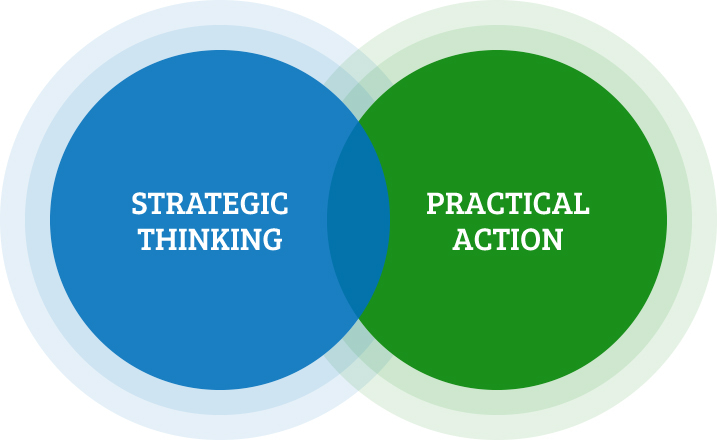One Health, animal welfare & Biosecurity
Our company has been helping clients improve animal welfare and biosecurity for more than two decades
Our services range from risk assessment and containment design to biosecurity project implementation and One Health programme review and design, operating at the human-animal-environment interface.
Whether it’s developing a health strategy that considers climate-related challenges, tailoring an animal welfare vision for a specific industry or tackling wider public health and health infrastructure issues, we offer a holistic approach, global experience, a diverse team of specialists and a commitment to marrying animal welfare, biosecurity and One Health for comprehensive health solutions.
Our consultants include epidemiology specialists, who help organisations identify and manage complex biosafety and biosecurity problems using structured data collection and analysis, an environmental health specialist and a number of other experts who can be called upon to advise on particular specialist areas. Our company Group Chairman, Dr Alan Pearson, also has a technical background in veterinary science and biological incursion risk management.
Animal welfare
Our company has a strong legacy of animal welfare advisory services, operating in this area for three decades. Welfare of animals is crucial as it correlates strongly with animal health and avoidance of disease risks to both animals and humans. Examples of past work include assisting with the development of animal welfare Codes of Practice for livestock in New Zealand and Australia, as well as improved animal welfare practices in livestock industries across multiple continents, as part of the implementation of international development assistance programmes. We have also carried out industry advisory work in Mongolia, where Prime was contracted to advise on good practices for hygienic and humane livestock slaughter. This led to reform of existing industry practices and development of improved standards. Other assignments have included research to understand drivers of compliance with animal welfare legislation in New Zealand’s livestock production sector (sheep, beef, dairy, poultry, pigs and deer) and developing a National Animal Welfare Strategy and 10-Year Vision for Australian Pork Ltd.
Biosecurity and biosafety
Biosecurity is another core capability of Prime, with early assignments focused on incursion risk management for the New Zealand Government, a country with strict biosecurity policy due to its rich endemic flora and fauna and commitment to protecting it. Other examples of past work include reviewing the Biosecurity Code of Practice for the Australian pork industry, assessing the economic cost of pests to New Zealand and assisting the New Zealand Government with a decision support framework to assist in the response to a Mycoplasma bovis outbreak in cattle. Our expertise in this area extents to all aspects of biosafety.
One Health and pandemic prevention
In an era where pandemics pose significant global threats, Prime’s focus on One Health and preventive measures places it at the forefront of global health solutions. Working at the human-animal-environment interface, we draw on a pool of experts to help protect global food systems, prevent future pandemics and contribute to better health outcomes. Our toolkit includes reviewing and designing One Health frameworks and putting action plans in place in situations where human and animal health is at risk. Examples of past work include conducting a scoping and design exercise for a One Health surveillance framework in Central Asia and advising on the formation of a five-year One Health action plan and budget for Vietnam.
Specific capabilities:
• Risk assessment
• Industry and community consultations
• Review of existing documents and data
• Development of recommendations on system improvements and risk mitigation
• Technical advice on control of zoonotic diseases, food safety and antimicrobial resistance
• Economic analysis and decision support modelling of management options for public health issues
• Health infrastructure review and advice
• Environmental health advisory work
Examples of past work
• Assessment and recommendations on development of a One Health surveillance framework for action across five countries in Central Asia (Kazakhstan, Kyrgyzstan, Tajikistan, Turkmenistan, Uzbekistan) on behalf of World Bank; 2022-23.
• Developing a health strategy for the Cook Islands that considers climate related health challenges on behalf of the Cook Islands Government and Asian Development Bank (ADB); 2023.
• Technical assistance to the Cook Islands Government to develop a proposal to the Green Climate Fund for funds to strengthen health system infrastructure and practices, to handle emerging risks driven by climate change; 2022-23.
• Developing a five-year One Health plan for the Government of Vietnam, providing holistic risk management of animal, environmental and related human health threats, funded by EU; 2021.
• Reassessing the economic cost of pests to New Zealand, in a technical paper for the country’s Ministry of Primary Industries, including estimating productivity losses to the private sector from invasive species; 2022.
• Developed and conducted a technical study using proven scientific and analytical techniques to assess and more clearly illustrate the chain of causation between climate change and its impacts on invasive species and animal/plant pathogens in the Pacific, specifically in Samoa and Tonga, as part of the revision of a Concept Note and pre-feasibility study for the Green Climate Fund, on behalf of SPC; 2021.
• Developed a National Animal Welfare Strategy and 10-Year Vision for Australian Pork Ltd; 2003-2007.
• Investigated the epidemiology of Brucellosis disease in livestock and people in the Central Highlands of Afghanistan and designed a livestock vaccination programme to control the disease utilising Geographic Information Systems (GIS) technology; 2015.
• Provided advice on good management practices for livestock welfare and hygienic humane slaughter of food animals in Mongolia; 2011.
• Conducted a major review of New Zealand’s national biosecurity surveillance programmes and made recommendations for their improvement; 2001-2002.
• Conducted a national survey on the drivers of animal welfare compliance in the New Zealand livestock industries on behalf of the country’s Ministry for Primary Industries; 2012.
• Completed a Pig Movement Study, investigating biosecurity risks, on behalf of New Zealand’s former Ministry of Agriculture and Forestry; 2008.



